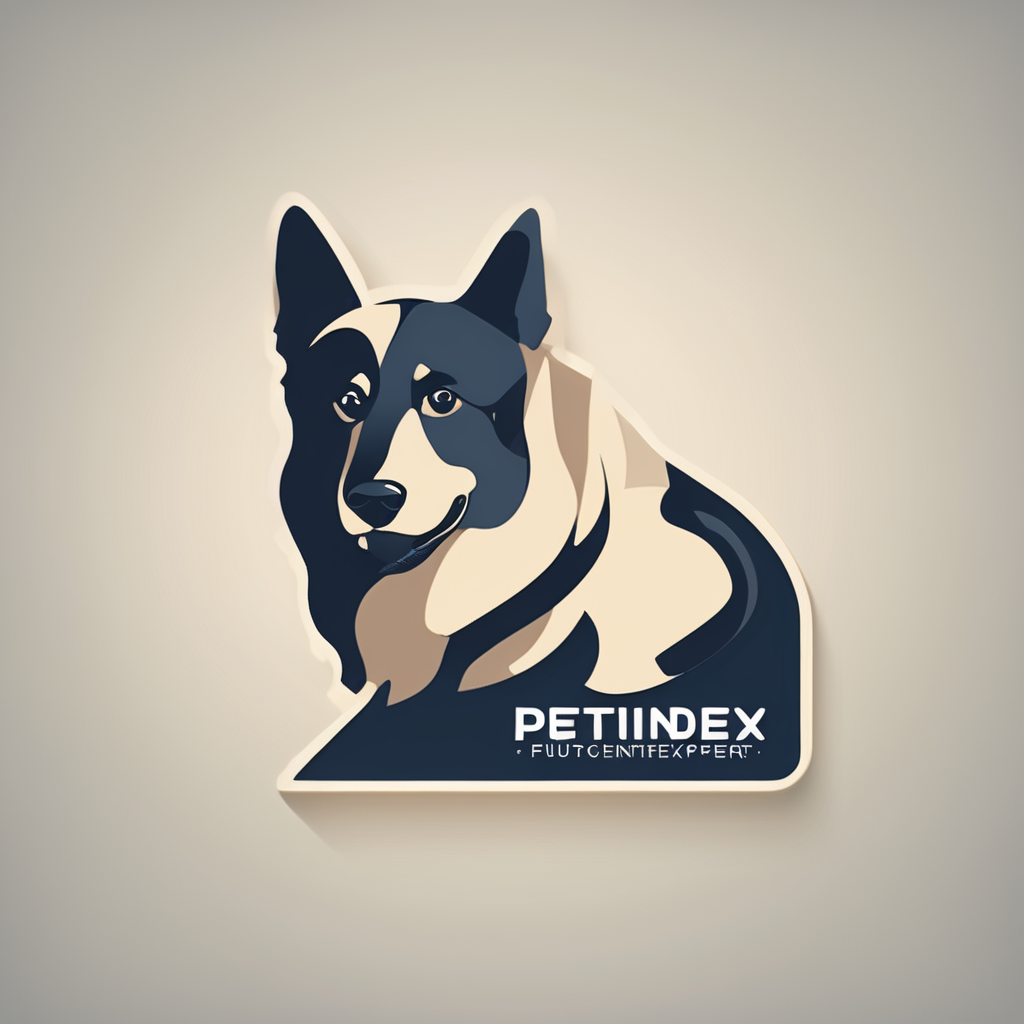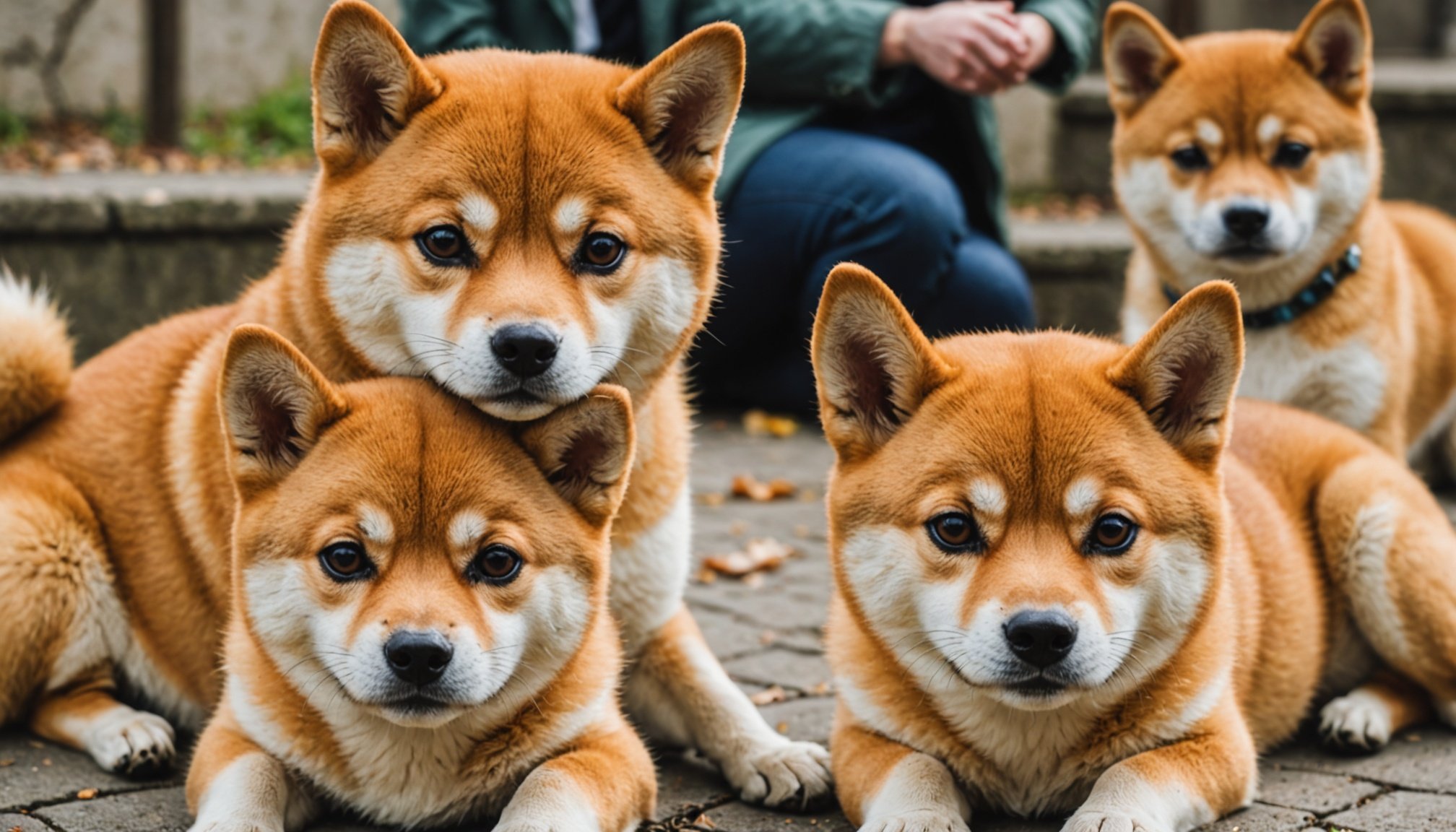Successfully Socializing Your Young Shiba Inu with Other Pets: Top Strategies
If you’re a new owner of a Shiba Inu puppy, you’re likely eager to ensure your new companion grows into a well-adjusted and sociable dog. Socialization is a critical aspect of your Shiba Inu’s development, especially when it comes to interacting with other pets. Here’s a comprehensive guide to help you navigate this essential process.
Understanding the Importance of Socialization
Socialization is the foundation upon which your Shiba Inu’s behavioral health is built. It is during this phase that your puppy learns to interact with its environment, people, other animals, and various situations that it may encounter throughout its life.
This might interest you : Essential Guide: How to Safely Welcome a Rescue Greyhound into Your Home with Young Children
“Socialization is an essential step in the education of your Shiba Inu. It is through this phase that the young dog will learn to familiarize itself with its environment, people, other animals, and the various situations it may encounter in life,” emphasizes an expert from Animaux Sauvages[1].
Creating a Safe and Positive Environment
When socializing your Shiba Inu with other pets, it’s crucial to create a safe and positive environment. Here are some key considerations:
Also read : Proven Strategies to Successfully Housebreak a Stubborn Basset Hound: Tips for Every Owner
Choose the Right Time
Ensure that your puppy is old enough and has received the necessary vaccinations before exposing it to other animals. Typically, this is around 16 weeks of age, but always consult with your veterinarian for specific advice.
Start with Familiar Environments
Begin by introducing your puppy to familiar environments such as your home or a quiet park. Gradually move to more diverse settings like dog parks, pet stores, or friends’ homes.
Use Positive Reinforcement
Positive reinforcement is a powerful tool in dog training. Reward your puppy with treats, praise, and affection when it behaves calmly or positively around other pets.
“A positive reinforcement strategy is highly effective in the socialization of Shiba Inu puppies. This approach helps in building confidence and reducing anxiety,” notes a veterinary expert from GTI-Veterinaire[2].
Step-by-Step Guide to Socializing with Other Pets
Here’s a detailed step-by-step guide to help you socialize your Shiba Inu with other pets:
Initial Introductions
- Begin with Visual Introductions: Start by allowing your puppy to see and smell other pets from a distance without direct contact. This helps in reducing initial stress.
- Use Neutral Ground: Choose a neutral location where neither pet feels territorial.
- Keep it Short: Initial interactions should be brief to avoid overwhelming your puppy.
Gradual Face-to-Face Interactions
- Leash or Controlled Environment: Use a leash or a controlled environment like a fenced area to ensure safety.
- Monitor Body Language: Watch for signs of stress or aggression in both pets. If you notice any, it’s best to separate them immediately.
- Reward Calm Behavior: Positively reinforce calm behavior with treats and praise.
Integrating Play and Interaction
- Supervised Play: Once your puppy is comfortable with the presence of other pets, introduce supervised play sessions.
- Rotate Playmates: Rotate the pets your puppy interacts with to expose it to different personalities and breeds.
- Teach Basic Commands: Ensure your puppy knows basic commands like “sit,” “stay,” and “come” to help manage interactions.
Practical Tips for Successful Socialization
Here are some practical tips to make the socialization process smoother and more effective:
Respect Your Puppy’s Pace
- Each puppy has its own comfort level and learning pace. Never force your Shiba Inu to interact if it’s not ready.
- “Remember that each Shiba Inu has its own rhythm. It is important to respect this rhythm and never force your puppy to interact if it is not ready,” advises an expert from Animaux Sauvages[1].
Provide Mental Stimulation
- Mental stimulation is as important as physical exercise. Engage your puppy in puzzle toys, hide-and-seek games, and obedience training to keep it mentally active.
- “Providing mental stimulation through activities like puzzle toys and hide-and-seek games can help in reducing stress and anxiety in your Shiba Inu,” suggests a dog training expert.
Be Consistent
- Consistency is key in dog training. Ensure all family members follow the same rules and reinforcement strategies.
- “Consistency in training and socialization is crucial. It helps in building trust and reducing confusion for your puppy,” notes a veterinary expert.
Common Challenges and Solutions
Socializing a Shiba Inu can come with its own set of challenges due to the breed’s independent nature. Here are some common challenges and how to address them:
Independent Nature
- Shiba Inus are known for their independent nature, which can make training and socialization more challenging.
- Solution: Use positive reinforcement techniques and make training sessions fun and engaging. Reward independence with praise and treats when it aligns with desired behaviors.
Fear or Aggression
- Some Shiba Inus may exhibit fear or aggression towards other pets.
- Solution: Gradual exposure and positive reinforcement can help. Start with visual introductions and gradually increase face-to-face interactions under close supervision.
Table: Comparing Different Socialization Methods
| Method | Description | Benefits | Challenges |
|---|---|---|---|
| Positive Reinforcement | Rewarding desired behaviors with treats and praise. | Builds confidence, reduces anxiety. | Requires consistency and patience. |
| Gradual Exposure | Gradually introducing your puppy to new environments and pets. | Reduces stress, allows for comfortable interactions. | Needs careful planning and supervision. |
| Supervised Play | Allowing pets to play under close supervision. | Encourages social skills, provides exercise. | Requires careful monitoring to avoid conflicts. |
| Training Sessions | Structured training sessions focusing on social skills. | Teaches obedience, enhances social behavior. | Can be time-consuming, requires commitment. |
Socializing your young Shiba Inu with other pets is a crucial step in its development, ensuring it grows into a confident, well-adjusted dog. By following these strategies, you can create a positive and safe environment for your puppy to interact with other animals.
Remember, patience and consistency are key. Respect your puppy’s pace, provide mental stimulation, and use positive reinforcement to make the socialization process enjoyable and effective.
Here’s a final tip from an expert: “Integrating play into your puppy’s daily life, alternating types of games, fostering socialization, and educating your dog through play are all strategies that will contribute to its well-being and health. Don’t forget the importance of patience and consistency in your puppy’s education. After all, each puppy is unique and learns at its own pace.”
By adhering to these guidelines, you’re on the right path to raising a happy, healthy, and well-socialized Shiba Inu. Good luck on this wonderful journey of canine education
Navigating Challenges During Socialization
Socializing a Shiba Inu can sometimes be an adventure filled with challenges, like overcoming fear and anxiety. Recognizing common socialization hurdles is the first step. Fear is a natural response your dog may have to new environments or unfamiliar dogs. This can manifest in various ways, such as hiding, excessive barking, or even aggression.
To address these issues, patience plays a crucial role. Gradually introducing your Shiba Inu to new situations can help reduce fear. Start with familiar places and gradually increase exposure to different settings. Consistency in training routines also aids in building confidence and managing anxiety over time.
Managing anxiety requires positive reinforcement and calm, assertive energy from the owner. Praise and reward your Shiba Inu when they exhibit calm behaviour during socialization. This encourages them to remain relaxed and less fearful.
For instances of aggression, it is essential to remain calm and redirect their focus with a suitable distraction or command. Regular training sessions combined with understanding and empathy can transform socialization into a rewarding experience for both of you, marking consistent progress. Your Shiba Inu will thrive with the right approach to anxiety management.
Expert Tips and Best Practices
When it comes to dog training, expert advice is indispensable. Proven techniques from professional trainers highlight the importance of positive reinforcement and consistency in socialisation efforts. For effective socialisation, it’s beneficial to introduce your dog to a variety of environments, people, and other animals. Ensuring these experiences are positive can significantly boost your dog’s confidence and adaptability.
Successful socialization is much more than just letting your dog meet others. Socialization classes offer structured environments where professional trainers can guide you, providing invaluable feedback and strategies. These classes are often preferred over solo attempts, as they offer controlled settings that reduce the risk of overwhelming your dog, which can create fear or anxiety.
The lifelong implications of successful early socialization cannot be overstated. Dogs well-socialised from a young age are generally more comfortable in new situations, less likely to show aggressive behaviour, and better equipped to communicate and interact with other dogs. Consistent and thoughtful socialization creates a solid foundation for future training and behaviour, highlighting the importance of starting these practices early. By following expert advice, you can ensure a harmonious relationship with your canine companion, marked by mutual trust and understanding.
Monitoring Progress and Adjustments
Taking the time to effectively track behaviour is crucial in understanding the development of socialisation skills. By maintaining a consistent record of interactions and behaviour patterns, you can assess what strategies are working and identify those that might need modification. Signs of successful socialisation typically include an increase in positive interactions, such as playing, sharing, and responding to social cues. In contrast, areas needing improvement may be indicated by withdrawal, lack of engagement, or continued aggressive behaviour.
Adjusting Strategies
When monitoring the progress of socialisation assessment, it’s essential to adjust strategies appropriately. If certain approaches are not yielding positive results, try altering them to better fit individual needs. For instance, increasing the frequency of social interactions or changing the environments in which they occur can often lead to noticeable improvements.
Seeking Professional Help
Despite best efforts, some challenges may persist. Recognising when to seek professional help is crucial. A specialist can provide tailored advice and interventions, offering invaluable support for children and caregivers alike. Remember, seeking assistance is a proactive step towards overcoming obstacles and fostering a more positive social development journey.
The Long-Term Benefits of Socializing Your Shiba Inu
Socializing your Shiba Inu can yield numerous long-term benefits for both your pet and your household. Developing healthy relationships with other animals is crucial. This socialization strengthens bonds not just between your Shiba and other pets, but also with humans. When a Shiba is well-socialized, interactions become more harmonious, reducing stress for both the animal and owner.
Furthermore, a well-socialized Shiba Inu displays enhanced adaptability and calmness in various environments. Exposure to different settings and situations fosters a sense of security in your Shiba, which translates to better overall pet behavior. This adaptability makes it easier for the dog to thrive in diverse environments, whether a bustling park or a tranquil home.
The impact of socialization on your Shiba Inu’s overall health and happiness cannot be overstated. When dogs form healthy relationships, they tend to exhibit fewer behavioral problems, reducing potential stressors that might otherwise affect their well-being. By participating in regular social activities, your Shiba can enjoy enriched mental stimulation, contributing positively to its health and happiness.
Embracing these practices will pave the way for a more content, cooperative, and well-behaved companion.
Understanding Shiba Inu Temperament
The Shiba Inu is a breed noted for its distinctive personality traits. Understanding these traits is vital for owners to foster positive dog behavior. Generally, Shiba Inus are known for their independence and bold nature. They exhibit an alert and confident demeanor, often showcasing a strong-willed temperament.
These personality traits imply that Shiba Inus may not always get along with everyone. They can be aloof with strangers and may require time to warm up to new acquaintances. Thus, socialization from an early age is crucial to ensure they interact well with various people and other pets. This breed-specific characteristic makes structured socialization exercises necessary to prevent behavioral issues later.
Shiba Inus can also be quite territorial, affecting their interaction with other animals. They typically do best in households where they are either the only pet or introduced to companion animals gradually and carefully. Understanding these Shiba Inu traits can help owners create a harmonious environment that accommodates their unique behavior and personalities. Keeping these attributes in mind, future owners can make informed decisions about the suitability of this breed for their lifestyle and household dynamics.
Preparing for Socialization
Creating a safe and welcoming environment is pivotal for successful pet introductions. Pets, much like humans, thrive in spaces that feel secure and comfortable, which helps reduce unnecessary anxiety during interactions with new companions. Begin by establishing a designated area where your pet can retreat if overwhelmed. This allows them to feel safe and enables a relaxed start to socialization.
Introducing new pets slowly is crucial. Abrupt changes can steal their sense of security, leading to stress and potential behavioural issues. To facilitate smooth pet introductions, use a phased approach. Allow pets to sniff each other’s belongings first before direct contact. Gradually extend these interactions as comfort levels increase.
Before diving into socialization, solid training basics must be established. Fundamental commands such as “sit” or “stay” can provide structure and predictability in social situations, acting as tools for control when introducing pets. These commands are not only reassuring for you but also foster a sense of safety for your pets. Mastery of basic training diminishes the possibility of negative behaviours and helps ensure that once introductions escalate, they continue positively, and in a manageable manner.
Step-by-Step Socialization Techniques
In socializing your Shiba Inu, familiarizing them with different scenarios is key. Training methods such as gradual exposure and positive reinforcement can help achieve this effectively.
Leash Acclimation
Start by making your Shiba Inu comfortable with wearing a leash. Introduce it in a familiar, controlled environment before venturing outdoors. Make sure your pet associates the leash with positive experiences by giving small rewards during this process. Utilize different environments for practice, increasing complexity as your pet becomes more confident. Techniques like consistent commands and patient, calm gestures help keep your Shiba Inu relaxed during introductions.
Controlled Playdates
Choosing compatible pet partners is crucial for early playdates. Observe playmates’ demeanour and energy levels to ensure a good match. Set clear boundaries and stay vigilant in monitoring interactions. Using toys and treats can help foster positive experiences for both pets.
Gradual Exposure to Different Pets
Begin socialization with pets your Shiba Inu is already comfortable with. Progress towards introducing unfamiliar animals gradually. Pay attention to signs of stress or comfort, and adjust interactions accordingly. Supervised interactions allow Shiba to build confidence, ensuring a more comfortable socialization process as they become familiar with new friends.
Overcoming Challenges in Socialization
Navigating the socialization hurdles of Shiba Inus can be daunting, given their independent nature and territorial instincts. One common challenge is managing their guarded behavior, which can manifest as aggression or fear in new settings. This can often be attributed to insufficient early exposure to diverse environments and interactions.
Managing behavior issues requires patience and understanding. When introducing Shiba Inus to new experiences, gradual and positive reinforcements are key. For instance, exposing them to different sights, sounds, and smells in a calm and controlled manner can help alleviate stress and reduce aggression. Additionally, rewarding calm behavior will foster a positive association with new experiences.
However, there are situations where consulting with experts is prudent. If aggression persists despite proactive measures, professional guidance from dog trainers or behaviorists may provide tailored strategies. These experts can offer insights and techniques specifically designed to address your Shiba Inu’s unique triggers, ensuring a safer and more harmonious socialization process. Seeking expert consultations can lead to a better understanding of your pet’s needs, ultimately creating a more enjoyable environment for both the dog and its owner.
Success Stories and Case Studies
In the world of Shiba Inu owners, anecdotal evidence abounds, offering a treasure trove of insights into pet socialization success. Understanding these stories can provide both comfort and actionable strategies for new and seasoned Shiba owners.
Consider the heartwarming tale of Charlie, a Shiba Inu whose initial socialization struggles were chronicled by his owner in heartfelt testimonials. Charlie’s owners employed an approach based on gentle exposure to varied environments and regular interaction with other dogs. This method highlighted the potential for dramatic behavioural transformation, showcasing an impressive turnaround from a timid puppy to a sociable companion.
Anecdotal evidence proves invaluable for understanding diverse scenarios. For example, Luna, another Shiba Inu, faced challenges adapting to a multi-pet household. Through perseverance and gradual integration strategies, Luna now thrives alongside her feline friends, forming strong bonds and enriching the familial dynamic.
The lessons learned from these real-life cases are clear: patience, consistency, and exposure are key. Seasoned Shiba owners recommend gradual introductions, observing body language, and providing a balance of positive reinforcement and space to ensure a positive socialization experience. Testimonials like these serve not only as guidance but also as reassurance that with time and effort, a successful socialization journey is attainable.
Resources and Recommendations
Understanding and caring for a Shiba Inu can be challenging, yet rewarding. To aid in this journey, a range of training resources exist for owners to explore. Recommended readings like “The Art of Raising a Puppy” offer insights into the breed’s unique temperament. Additionally, various online courses provide structured guidance on obedience and behaviour management, crucial for this independent breed.
Beyond literature, joining online forums or local groups can connect you with fellow Shiba enthusiasts. These platforms are invaluable, offering expert recommendations from long-time breeders and trainers. Sharing experiences and tips creates a supportive community, crucial for novice owners encountering breed-specific quirks.
Leveraging multimedia tools enhances learning and understanding. Interactive training videos break down complex commands, making them more accessible. Pairing these with infographics aids in visualising steps and strategies, simplifying processes for diverse learners.
Reliable pet care tools specifically designed for Shibas, such as harnesses and grooming kits, ensure optimal daily management. Choosing the right resources and community can significantly enhance both your expertise and your dog’s quality of life, encouraging harmony in your home.











